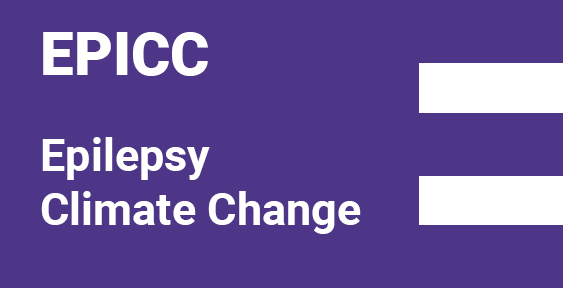About EPICC

Why was EPICC created?
"We are, as fellow professionals, deeply concerned about the possible effects of climate change on people with epilepsy. We outline our concerns and thoughts in this article published in Epilepsia Open. As the renowned naturalist Sir David Attenborough said recently, ‘we face an existential threat to life on earth’. The Bulletin of the Atomic Scientists’ Doomsday Clock places us close to the midnight hour."
Professor Sanjay Sisodiya, Director of Genomic Research and founding member of Epilepsy Climate Change (EPICC)

Behind EPICC
"As epilepsy and its care can be strongly influenced by environmental factors, it is important to consider how climate change might affect epilepsy and to raise awareness within the epilepsy community of these issues. We want to facilitate and promote efforts by people affected by epilepsy, families and carers, and epilepsy professionals, in addressing what actions we can take."
Professor Sanjay Sisodiya, Director of Genomic Research and founding member of Epilepsy Climate Change (EPICC)
Nicola Swanborough
subtitle: Meet the EPICC team
Nicola Swanborough is Head of External Affairs at the Epilepsy Society.
Sanjay Sisodiya
subtitle: Meet the EPICC team
Professor Sanjay Sisodiya is Director of Genomic Research at Epilepsy Society and founding member of Epilepsy Climate Change (EPICC).

What does EPICC aim to achieve?
The purpose of EPICC is to share knowledge, disseminate information and promote research and practices that reduce contributions to climate change and help mitigate its effects on epilepsy. EPICC is a venue for discourse, generation of useful activities and encouraging change from within the epilepsy community.
What is the need for EPICC?
Current research indicates climate change could increase risk of seizures and epilepsy. A number of climatic variables are associated with increased seizure frequency in people with epilepsy, such as fevers, stress, sleep deprivation, fatigue or vector-borne infections triggering or exacerbating seizures. This can lead to deterioration of seizure control and may affect neurological, cerebrovascular, or cardiovascular comorbidities and risk of sudden unexpected death in epilepsy.
WHO has made clear the health benefits of mitigating climate change far outweigh the costs
How does EPICC work?
EPICC encourages:
• Awareness and further research into the impact of climate change on people with epilepsy
• Change in current behaviours and a move towards more sustainable practices
We invite everyone interested in joining EPICC to read our Memorandum of Understanding (opens in PDF)
It’s time to take action
Become a member with us at EPICC and take action against climate change today.
Footnotes:
EPICC, Epilepsy Climate Change
References:
1. Sisodiya SM et al. Epilepsia Open 2019; 4:524–536.
2. World Health Organization. COP24 special report: health and climate change. Geneva: World Health Organization 2018.
Available at: http://www.who.int/iris/handle/10665/276405 (Accessed July 2021).
3. Sisodiya SM et al. Epilepsia Open 2019; 4:524–536.
4. Seizures and Hot summers 10-08-20
5. Frucht MM et al. Epilepsia 2000; 41:1534-1539.
6. Rifkin DI et al. Sleep Med Rev. 2018; 42:3-9.
7. Gulcebi MI et al. Epilepsy & Behaviour 2021; 116, doi: 10.1016/j.yebeh.2021.107791.



